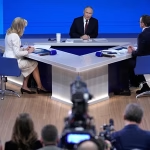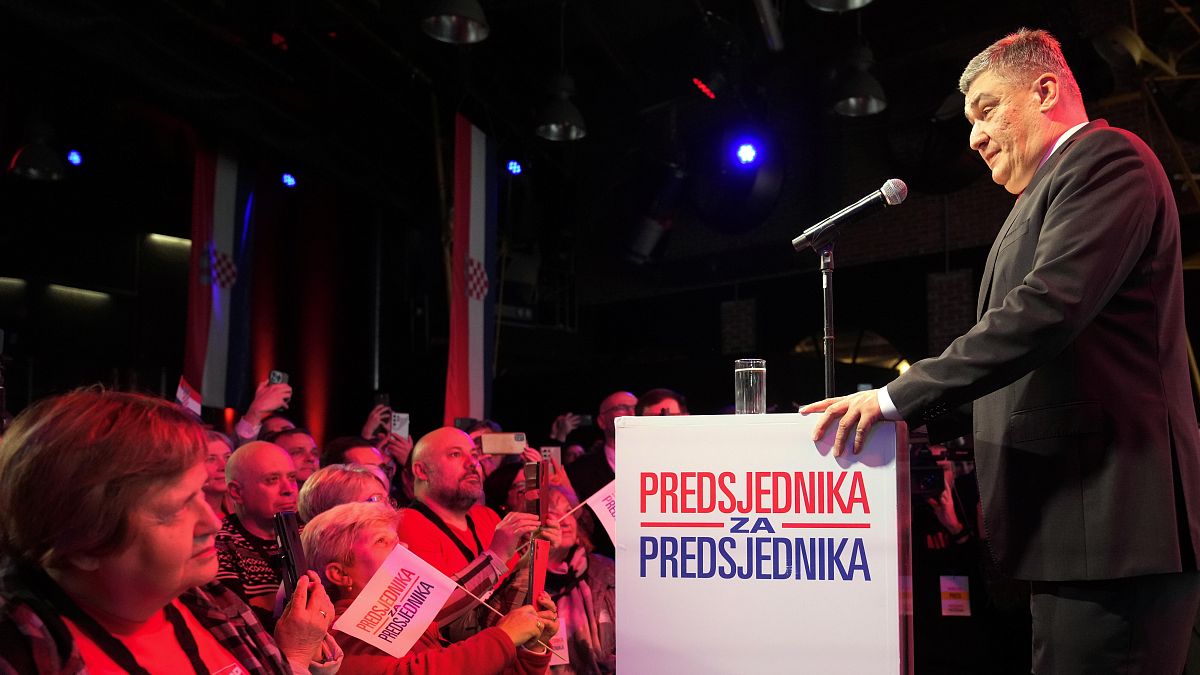In the recent Croatian presidential election, incumbent President Zoran Milanović emerged as the front runner, winning 49% of the votes. However, since he did not secure an outright majority, he will face a runoff against the ruling party candidate, Dragan Primorac. Pre-election polls had already predicted a second round between Milanović and Primorac, as none of the eight candidates were expected to receive over 50% of the votes. Milanović, a left-leaning politician, is known for his criticism of Western support for Ukraine in its conflict against Russia. He is often compared to Donald Trump for his confrontational approach towards political adversaries. Despite Milanović’s lead in the first round, he remains cautiously optimistic, recognizing that the battle is not over until the final outcome.
Milanović’s opponent, Dragan Primorac, has been portrayed as a unifier in the campaign, contrasting himself with Milanović, who is viewed as divisive. Primorac emphasizes the importance of Croatia’s position in the West, aligning with NATO and the EU. The election has been overshadowed by a high-profile corruption case involving Croatia’s health minister, which has impacted Primorac’s candidacy. Despite it being largely symbolic, the Croatian presidency holds political power and acts as the supreme military commander. With Croatia’s turbulent political scene, marked by tensions between Milanović and Prime Minister Andrej Plenković, the election has broader implications for the country’s future direction.
Marija Selak Raspudić, an independent conservative candidate, trails behind Milanović and Primorac in the polls. She has centered her campaign on addressing economic challenges faced by Croatian citizens, widespread corruption issues, and the country’s declining population. The election comes on the heels of two previous votes earlier in the year, including a parliamentary election in April and the European Parliament ballot in June. The political landscape in Croatia remains in flux, with this presidential election serving as a crucial indicator of the country’s trajectory in the coming years.
As the campaign intensifies leading up to the second round runoff between Milanović and Primorac, the candidates are likely to focus on key issues such as Croatia’s alliances with Western powers, internal corruption challenges, and economic hardships faced by the population. Milanović’s skepticism towards NATO and EU support for Ukraine contrasts with Primorac’s firm belief in Croatia’s place in the West. The outcome of the election will not only determine the next president of Croatia but also shape the country’s position in the international community. With Milanović seeking to retain his presidency and Primorac aiming to shift the country towards Western alignment, Croatian voters face a critical decision in the upcoming runoff.











